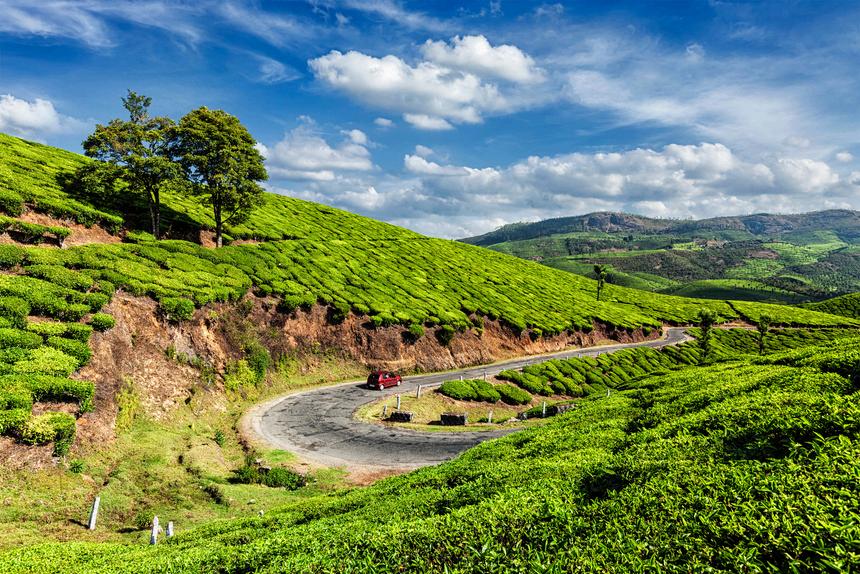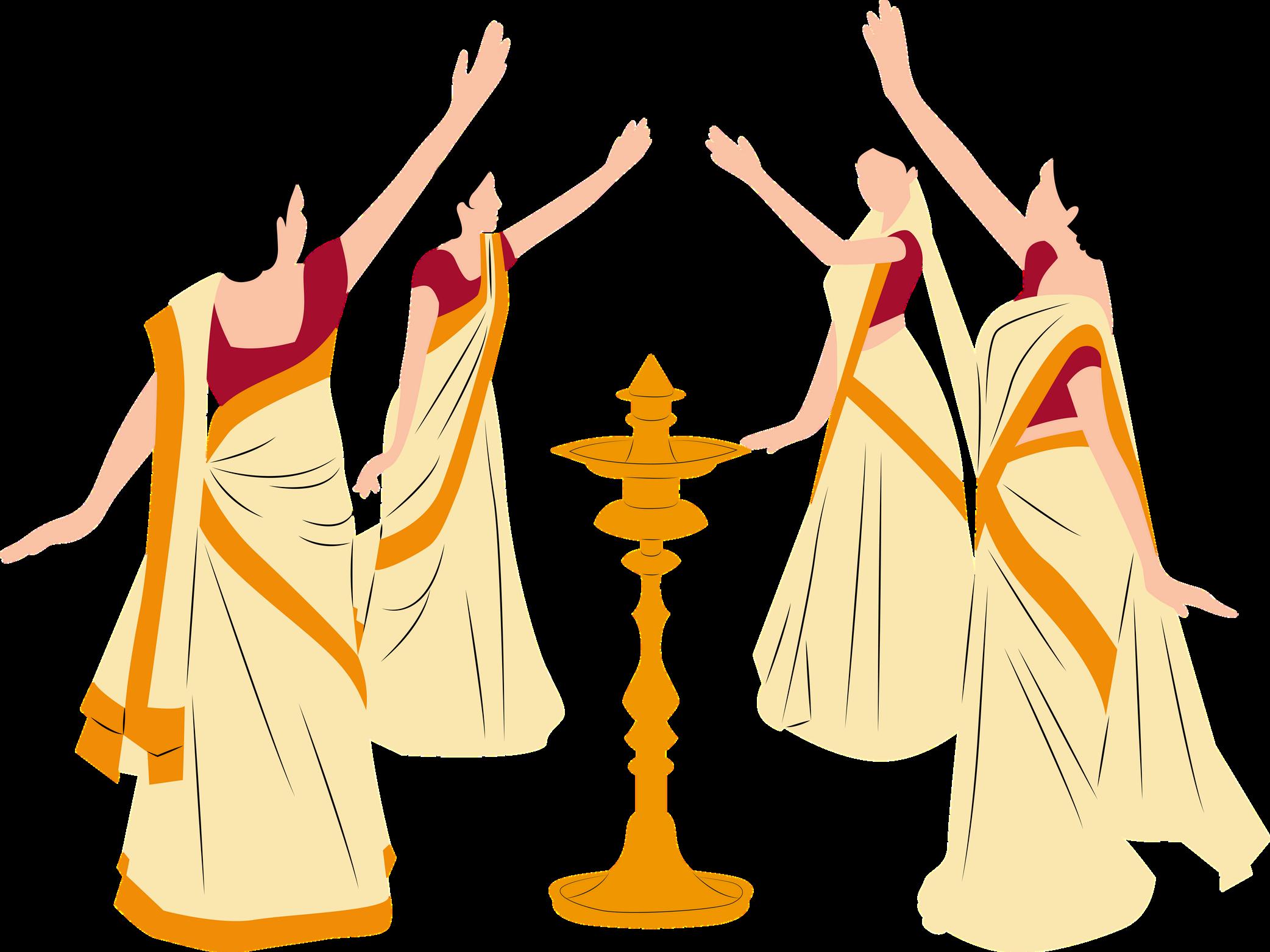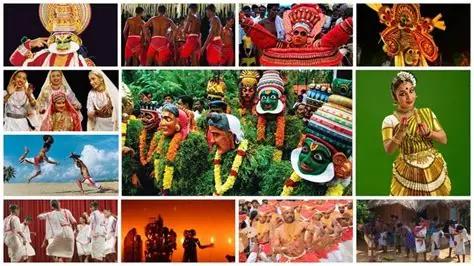
own country












India is a country known for its culture, heritage, history and natural resources. All the states and union territories have a good number of locations catering to the domestic and international tourists. Flanked by the Arabian Sea in the West, the towering Western Ghats in the East and networked by 44 interconnected rivers, Kerala is blessed with a unique set of geographical features that have made it one of the most sought-after tourist destinations in Asia. A long shoreline with serene beaches, tranquil stretches of emerald backwaters, lush hill stations and exotic wildlife, are just a few of the wonders that await you once you crossover to the other side.





Kerala is known as the God's Own Country in India. It is famous for its lush green forests, swinging coconuts, palm fringed beaches, engaging backwaters and the Ayurveda treatment resorts, all being unique to Kerala.
•Kerala has a reputation of being, communally, one of the most religiously diverse states in India. According to 2011 Census of India figures, 54.73% of Kerala's population are Hindus, 26.56% are Muslims, 18.38% are Christians, and the remaining 0.33% follow other religions or have no religion
•Malayāḷam; Malayalam has official language status in Kerala, Lakshadweep and Puducherry and is spoken by 34 million people in India
Compared to other Indian states, Kerala lies closer to the equator. Bestowed with a pleasant and equable climate throughout the year, Kerala is a tropical land where one can relax and be at ease. Kerala has a tropical climate with three main seasons. The Monsoons (June-September and October-November) and summer (February-May) are the seasons markedly experienced here, while winter is only a slight drop in temperature from the normal range of 28-32°C. The Southwest Monsoon lasts from June to September, bringing heavy rains that turn the landscape lush and green. This is the main rainy season and essential for agriculture.
From October to November, the Post-Monsoon season brings less rain and pleasant weather, making it a good time for harvesting crops. The winter months, December to February, are mild and comfortable with cooler temperatures, especially in the hills. This is the most popular season for tourists. Finally, the summer season from March to May is hot and humid, often exceeding 35°C. Pre-Monsoon showers sometimes provide relief before the rains begin again. Summer school holidays for two monthsApril, May.
Onam: The national festival of Kerala celebrated to welcome King Mahabali. 10 day-long celebration, the most important day being thiruvonam which is usually the fifth day. Annual Onam events are the biggest cultural gatherings featuring: Traditional dances (Thiruvathira, Kathakali performances).
Onam Sadya (a large vegetarian feast served on banana leaves). Games, music, and competitions for all age groups


Thrissur Pooram: The grandest of all the famous temple festivals in Kerala. It is a unique festival of Kerala celebrated by Hindu women. It commemorates the cosmic dance of Lord Shiva, symbolizing the eternal cycle of creation and destruction. On this day, women observe fasting, perform traditional dances, and partake in various rituals praying for marital bliss and the well-being of their spouses.
Vishu: Vishu marks the Malayalam New Year and is a significant festival celebrated with zeal in Kerala
Attukal Pongala: A unique festival where women cook a special offering

Christmas: Celebrated by the Christian community. It is a time for family, fervent devotion and ceaseless celebration. It is a time when members of the family that stay in distant lands come home to be welcomed with joy and love. Most Kerala Christians follow catholic liturgy and observes lent for 25 days preparing spiritually and physically for Christmas.
Makaravilakku: A festival at the Sabarimala temple. Pongala: A festival where women cook rice pudding as an offering to the goddess Diwali is the Hindu festival of lights.
Easter is celebrated with great devotion and cultural richness by the Christian communities. Observes 50/40 days lent before Easter beginning from Ash Wednesday, avoiding mainly non vegetarian meals/what is ones favourite.
Eid al-Fitr means festival of breaking the fast and marks the end of the holy month of Ramadan.
Meal timings can also be noted, as it is typical in this culture to have four meals a day
Breakfast (7:00 AM – 9:00 AM)
Common dishes:Idli, dosa, appam with stew, puttu with kadala curry, idiyappam, upma.
Usually accompanied by coconut chutney and sambar or curry.
Lunch (12:00 PM – 2:00 PM)
Typical meal: Rice with a variety of curries and side dishes.
May include sambar, rasam, moru curry (buttermilk curry), fish curry, thoran (stir-fried vegetables with coconut), pachadi, and pickles.
Non-vegetarian households may have fish or meat as part of the meal
Traditionally served on a banana leaf during special occasions.
Tea/Evening Snack (4:00 PM – 6:00 PM)
Known locally as "chaaya time."
Includes tea or coffee with snacks like pazham pori (banana fritters), sukhiyan, ullivada (onion fritters), parippu vada, or boiled tapioca.
Dinner (7:30 PM – 9:30 PM)
Similar to lunch but typically lighter
Could include chapati with vegetable or meat curry, rice with a simpler set of sides, or tiffin items like dosa or idiyappam.

Kerala cuisine offers a multitude of both vegetarian and non-vegetarian dishes prepared using fish, poultry and red meat with rice as a typical accompaniment. Chillies, curry leaves, coconut, mustard seeds, turmeric, tamarind, asafoetida and other spices are also used in the preparation. Thorans is fried gravy-less dishes of finely chopped par-boiled vegetables, meat or seafood. They are marinated with mixtures of coconut, chillies, some mild spices, onions and popped mustard seeds
Avial is a mixed vegetable thick dish. A variety of vegetables are chopped and parboiled then cooked in coconut milk
Idiyappam
Olen is a gravy dish of gourd and dry beans and again, coconut milk (a favourite ingredient of Malayalee cuisine).
Kaalan is thick gravy made of semiripe Kerala Bananas cooked in thick yogurt and seasoned with turmeric, chilly, cumin seeds and curry-leaves. Pachadi is made of vegetables cooked in curds It has a distinctive tangy taste.
Thalassery Biryani is a rice-based dish blended with spices and chicken As it is the only biryani recipe in Kerala cuisine, it can also be called Kerala biryani.
Puttu and Kadala Curry
Appam with Stew Biriyani
Nadan Kozhi Varuthathu (Spicy Chicken Fry)

When an Indian woman’s pregnancy is confirmed, she will often first inform her mother and then her mother-in-law, one of whom then plans to be with her as soon as possible. They constantly advise (instruct) her by phone on how to manage her pregnancy until they arrive from India. The news of the pregnancy would not be disclosed outside the family for at least three months. The pregnant woman is treated almost like a princess, advised to take a lot of rest, and has her diet supervised remotely.
After the baby is born the mother is given a diet rich in proteins, fats and carbohydrates, while the baby’s feeding plan may also differ from what is considered customary in the UK. When the new mother arrives home after the birth, she can rest as senior family members do all the work and care for the baby, keeping it wrapped up most of the time, and avoiding exposure to the outdoors if cold.

• Nodding: Indians will often nod to acknowledge what is said out of politeness. However, this does not always mean they understand or agree.
• Head: The head is considered to be the holiest part of one's body. Touching someone on the top of the head is deemed to be insensitive and offensive
• In general, a young person will avoid eye contact with someone older as a sign of respect.
• This may also apply to women when engaging in conversation with men or people of high social standing.
• Indians expect people to greet the eldest or most senior person first. When greeting elders, some Indians may reach down and touch the ground or the elder’s feet as a sign of respect.

• It is advisable to address people by their title (Mr, Mrs, etc ) and last name until they have indicated that you may move on to a first-name basis.
• It is generally appropriate for men and women to shake hands. However, it is advisable to wait for a woman to extend her hand first. Some Muslim or Hindu men and women may not wish to touch a person of the opposite gender.
• They may not say please as often as British but this isn’t a demonstration of lack of respect
• Speaking softly and politely is valued.
• Interrupting elders while they speak is discouraged.
• Always remove your shoes before entering a home
• Respect for parents and grandparents is central.
• It is polite to wait until everyone is served before start eating.
• Keralites often eat with their hands, especially at home
• Kerala has a very high literacy rate and places great importance on education.



When someone thinks in their first language, their words can occasionally be misunderstood or not come across as intended in another language
Constructive feedback is appreciated when communication is perceived as impolite Encouraging direct and open dialogue helps to reduce gossip and promotes a respectful work environment
Rephrase or summarise what you have heard to confirm understanding and avoid miscommunication
If something is misunderstood, it is helpful to ask for clarification in a kind and respectful way.
Taking notes during discussions helps ensure clarity and mutual agreement on what has been communicated by all parties
Speak at a moderate pace to ensure clarity and allow others to fully comprehend the message.
Some staff may be reluctant to speak up out of politeness or concerns about confidentiality It is essential to maintain confidentiality at all times, as sensitive information can be inadvertently overheard during discussions All staff should take care to ensure conversations remain private and adhere to confidentiality standards Providing reassurance that concerns will be handled discreetly and respectfully can help staff feel more comfortable sharing information
Accents, slang, and traditional phrases can sometimes create communication challenges, particularly in conversations with managers or senior colleagues. Staff may be unfamiliar with certain expressions, so it is helpful to use clear, plain language whenever possible to ensure everyone understands
When managers are approachable and demonstrate that they care, staff feel more comfortable initiating conversations and raising concerns. If communication becomes limited, it is important to create additional opportunities for dialogue to ensure everyone’s needs are addressed.
If something is unclear, it is always acceptable to ask for clarification to ensure full understanding. Being too blunt is avoided. Politeness and indirect expressions are valued
Communication should be both kind and honest, fostering a respectful and trustworthy environment.
Create a safe environment for honest communication, possibly through one-on-one discussions.
Keralites may use indirect or polite language, especially to avoid conflict or embarrassment
They might say “maybe” or “we will see” instead of a direct “no”
Avoid assumptions about religion, dietary habits, or customs
Some may hesitate to give negative feedback openly.
